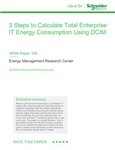Google has publicly accused Microsoft and Oracle of anti-competitive practices around its cloud business and how it licenses software.
The search and cloud company this week sent the Federal Trade Commission (FTC) a letter detailing alleged “harmful practices” as part of the commissions’ investigations into anti-competitive practices in the cloud sector.
Oracle also attacked AWS in its own comment. Amazon and Microsoft instead highlighted the competition in the space.
“Google Cloud ... shares a concern, which many others, including customers and partners, have also voiced, that licensing terms enforced by Microsoft, Oracle, and other legacy on-premises software providers distort competition in the cloud,” the company said in the 11-page letter.
“With overly complex agreements that seek to lock in clients to their ecosystems, these legacy software providers are aiming to turn their on-premises software monopolies into anticompetitive cloud monopolies,” the company continued. “In doing so, they are not only forcing customers toward a monolithic cloud model but also limiting choice, increasing costs for customers, and disrupting growing and thriving digital ecosystems in the US and around the world.”
Google specifically and repeatedly called out Microsoft, accusing it of “restrictive and discriminatory licensing and other harmful practices,” such as such as limiting interoperability of certain features and software on non-Azure cloud infrastructure.
In March the FTC put out a request for information on the business practices of cloud computing providers. The commission is looking into the competitive dynamics of cloud computing, how reliant certain segments of the economy are on cloud services, and the security risks associated with the industry’s business practices.
“Large parts of the economy now rely on cloud computing services for a range of services,” Stephanie T. Nguyen, the FTC’s chief technology officer, said at the time. “The RFI is aimed at better understanding the impact of this reliance, the broader competitive dynamics in cloud computing, and potential security risks in the use of cloud.”
Topics the FTC was seeking comment on included the ability of cloud customers to negotiate contracts with cloud providers, incentives providers offer customers to gain marketshare, how reliant customers are on proprietary services, and the extent to which cloud providers notify customers of security risks related to security design, implementation, or configuration.
The deadline to submit comment was this week. More than 90 comments were submitted. Companies including Red Hat, Cloudflare, Juniper Networks, and OVHcloud submitted comments.
Amazon Web Services (AWS) provided comment to the FTC, but did not attack its rival providers, it instead noted their rapid growth in recent years: “No cloud provider has anything close to a “monopoly,” and the industry is only getting less concentrated,” the company said.
Likewise, Microsoft's comment to the commission highlighted the competition in the space, and said regulators should “carefully avoid any intervention that might disturb the competitive offerings” the industry provides.
In its own letter, however, Oracle accused AWS of using “predatory billing practices to exclude competition” and being the “worst offender” around egress fees. It said the FTC should “thoroughly investigate” whether Amazon is leveraging its monopoly power in the space.
CISPE, which represents European cloud providers – including AWS but not Microsoft – suggested companies in Europe are being forced to pay “unfair, additional costs” to license software on cloud infrastructure provided by independent cloud infrastructure service providers. It specifically named Microsoft in its example.
The Electronic Privacy Information Center (EPIC) warned the AI market is highly concentrated in a small number of providers. The Electronic Frontier Foundation (EFF) noted Amazon’s “dominant” role in the market, calling the company a “load-bearing wall of the Internet.”
Mark Boost, CEO of cloud provider Civo, told DCD: “It is disheartening to see the persisting issue of anti-competitive practices in the cloud computing industry. The recent developments involving Google, the FTC, and Microsoft have again illustrated the urgent requirement for the needs of cloud users to be put first.”
A similar investigation may be coming in the UK. UK regulator Ofcom recently proposed to have the Competition and Markets Authority (CMA) investigate the cloud infrastructure market and see if regulation is needed to improve competition.
Google has faced a number of anti-trust investigations around its advertising and Android businesses. Microsoft has faced numerous competition investigations over the years, especially over its then-dominant position in the PC space in the 1990s. It continues to face accusations of anti-trust as it continues to grow its Azure service.
Last year OVH and Aruba filed an antitrust complaint against Microsoft in Europe, saying that Microsoft's licenses for cloud-based products such as the Office productivity suite unduly favor Microsoft's own Azure cloud. AWS-backed CISPE also weighed in on the case. Microsoft responded with a promise to change its licensing to make this situation fairer, but these would not apply to Google and AWS.
In 2020, Slack complained that Microsoft was bundling its Teams collaboration software unfairly, and in 2021, Nextcloud said its cloud storage service was facing unfair competition due to Microsoft bundling OneDrive with Windows.







